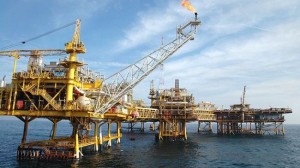 TEHRAN (FNA)- Iran is expected to define new frameworks for oil contracts in the next six months as the country seeks to make contracts more attractive to investors, a member of the Oil Ministry-appointed committee for revising oil contracts said.
TEHRAN (FNA)- Iran is expected to define new frameworks for oil contracts in the next six months as the country seeks to make contracts more attractive to investors, a member of the Oil Ministry-appointed committee for revising oil contracts said.Gholam-Reza Manouchehri�said the petroleum industry has already identified the weaknesses in the existing contracts.
�It seems that the existing contracts could not meet the expectations of domestic and foreign investors and contractors and we need to reconsider them,� he added.
Manouchehri said oil and gas fields show varying behaviors like living organisms throughout their life and they require certain measures to maintain their production.
�It has been often observed that production from hydrocarbon fields within the framework of buy-back contracts drops after the project is given to the contractor. At that time the contractor has no more obligations to this issue,� he said.
To that effect, he added. Petroleum Minister Bijan Namdar Zanganeh ordered the review of contracts in the oil industry for the purpose of making the contractor more committed and attracting investors.
�Based on the current structure of contracts in the oil industry, oil contractors are viewed as a jerry-builder who can abandon the field after his work ends. But the contractor in an oil project must be available for new studies, drilling new wells and installing pressure booster stations to maintain production,� he added.
Manouchehri proposed that a share in the production has to be given to the contractor to persuade him to stay.
He referred to the transfer of new technology into the country�s petroleum industry; enhanced oil recovery and preservation of the share of domestic manufacturers are among important issues which must be taken into account more seriously in the revision of oil contracts so that Iran can reach self-sufficiency through these contracts.
Pointing to the diversity of oil and gas fields in Iran, Manouchehri said that the presence of foreign companies in Iran�s old and deep fields like those in the Caspian Sea require international attractions. �Moreover, these attractions should be different. For example, shared fields must be more attractive than independent fields.�
�Currently, there are differences regarding oil and gas recovery in the fields we share with other countries and our neighbors are rapidly raising their production by benefiting from foreign companies. Therefore, we need to increase motivations in order to make up for years of delay,� he said.
�In revision of oil contracts, key and positive points in the oil contracts [signed in] Iraq, Kuwait, Saudi Arabia, Venezuela and the North Sea littoral states will be studied and taken into account. In case they do not contravene Iran�s national interests, they will be used,� he added.
Manouchehri said the current oil contracts Iraq has signed with international companies are an upgraded from of Iran�s service contracts.
He added that interference by outsourcers will be cut in the new contracts.
�At present, none of contractors operating in the new phases of South Pars [gas field] have any obligation regarding production and all project risks are covered by the outsourcer. In the new contracts, we will try to reduce the natural risks and make the contractor responsible for them,� he said.
Manouchehri noted that oil contracts are always high-risk in the world and that exploration is carried out precisely before any deal is signed for the development of hydrocarbon fields.
�In order to make up for all risks in the project, the contractor has to predict costs. Therefore, we need to sweeten our contracts so as to cover these costs for the contractor. One way of doing so could be an acceptable rate of return,� he said.
�Today, contractor companies mainly depend on the banks to provide the necessary finance [for the projects] and half of their profits go to the banks. Now if extra costs are imposed on the project for different reasons the contractor will have to slash from its profits and this will lower the attractiveness of work in Iran. Therefore, we can bring about flexibility in the contracts in order to avoid contractor losses.�
He promised that Iran�s new structure of oil contracts would be attractive and it will be warmly welcomed by foreign companies if sanctions are eased.
By Fars News Agency
The Iran Project is not responsible for the content of quoted articles.










